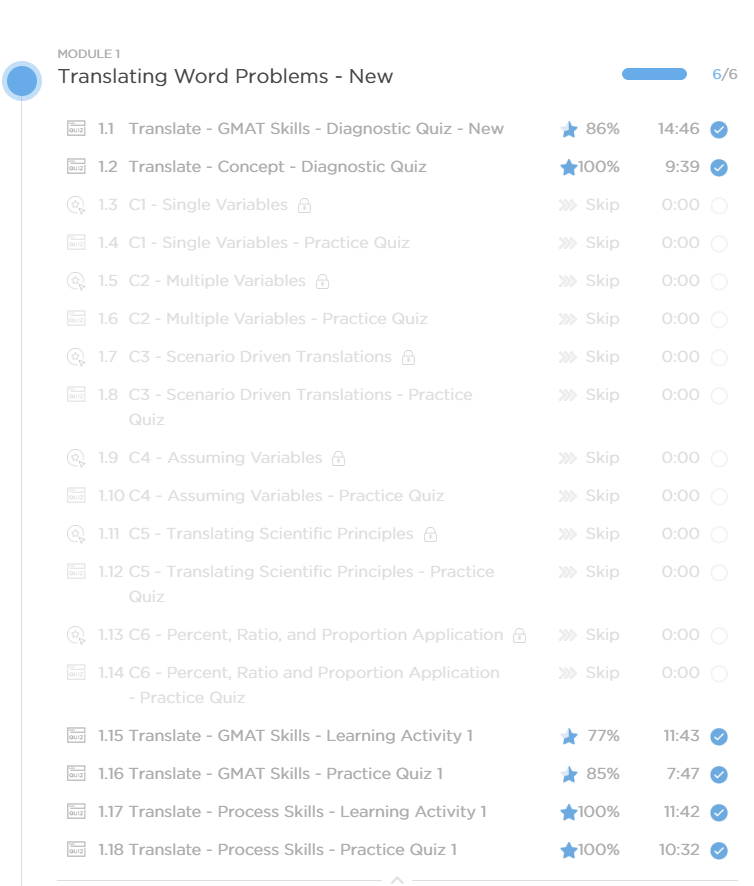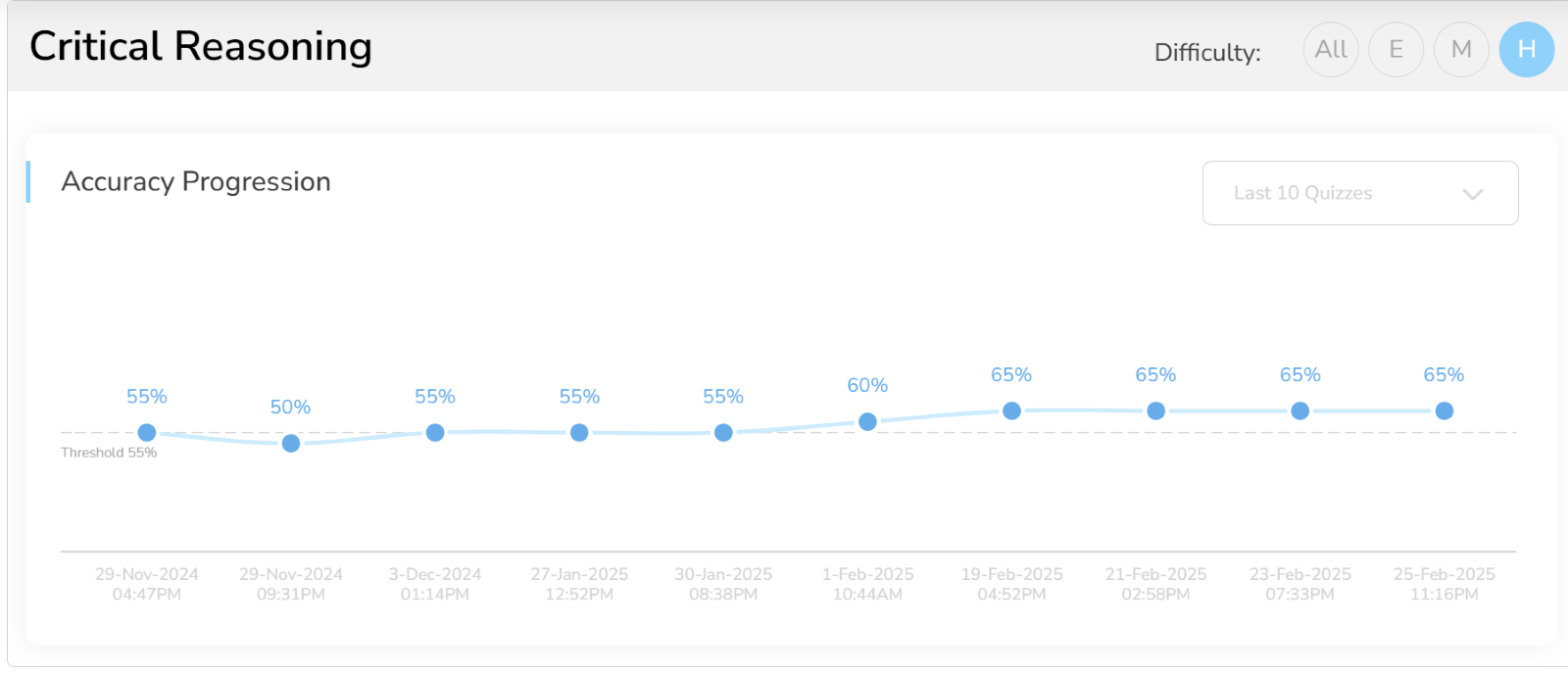Hi All,
I'm Nevedhya, an undergraduate student at IIT Madras, and I'm excited to share my GMAT journey that culminated in a 675 (Q88, V82, DI80). My path wasn't straightforward, but the 80-point improvement from my initial 595 taught me valuable lessons that I hope will benefit others facing similar challenges.
Like many GMAT aspirants, I began with self-study. I watched countless YouTube videos, browsed GMAT Club posts, and tried to piece together a study plan. My first diagnostic score was around 515-525, and after two months of self-preparation, I improved to 595 (Q81, V78, DI78).
Despite putting in considerable effort, I hit a plateau. Verbal was particularly challenging - I consistently struggled to complete the section within the time limit. Data Insights was similarly difficult as it required both verbal and quant skills. Even in Quant, where I had a stronger foundation due to my engineering background, I wasn't performing at the level I expected.
That's when I realized I needed a structured approach and expert guidance.
After researching various GMAT prep options and getting recommendations from siblings who had taken the GMAT, I enrolled in
e-GMAT. The structured approach was exactly what I needed to break through my plateau.
Quant: From Q81 to Q88
Being from an engineering background at IIT, I was comfortable with most mathematical concepts. My challenge wasn't understanding the material but applying it efficiently in GMAT-style questions.
The PACE system was a game-changer for me. After taking diagnostic quizzes, I discovered I had a strong grasp of concepts (100% on concept diagnostics) but needed work on question-solving approaches (86% on GMAT skills).
Attachment:
 GMAT-Club-Forum-qj0ny2pe.png [ 111.11 KiB | Viewed 885 times ]
GMAT-Club-Forum-qj0ny2pe.png [ 111.11 KiB | Viewed 885 times ]
This allowed me to skip concept lessons and focus directly on application, saving me over 42 hours of study time that I could redirect to verbal and DI. In WP alone, I saved close to 12 hours:
Attachment:
 GMAT-Club-Forum-abjtt34s.png [ 69.12 KiB | Viewed 879 times ]
GMAT-Club-Forum-abjtt34s.png [ 69.12 KiB | Viewed 879 times ]
Through focused practice, I reduced my quant section completion time from 45 minutes to just 30-35 minutes, giving me a comfortable buffer to review answers.
Surprisingly, Data Sufficiency was initially my weakest area despite my strong quant background. This paradox taught me that GMAT quant isn't just about mathematical knowledge but about approaching problems strategically.
Verbal: From V78 to V82: Verbal was my greatest challenge. Two issues were particularly problematic:
- Reading speed - initially taking 10-12 minutes per RC passage
- Pre-thinking in Critical Reasoning
Through structured practice of the reading strategies, I learned to invest more time upfront in understanding RC passages (4-5 minutes), which actually saved time when answering questions. This approach reduced my total time per passage from 10-12 minutes to 6-7 minutes.
For Critical Reasoning, developing pre-thinking skills was transformative. Instead of jumping directly to answer choices, I learned to analyze arguments methodically. My accuracy on hard CR questions improved from 55% to 65% while reducing average time per question to under two minutes:
Attachment:
 GMAT-Club-Forum-axfnteim.png [ 87.15 KiB | Viewed 872 times ]
GMAT-Club-Forum-axfnteim.png [ 87.15 KiB | Viewed 872 times ]
The step-by-step approach of visualization and pre-thinking helped me tackle arguments more effectively and avoid common traps in answer choices.
Data Insights: From DI78 to DI80 The Data Insights section initially overwhelmed me with its volume of information, especially in Multi-Source Reasoning questions.
e-GMAT’s "owning the data" approach helped me overcome this challenge.
I learned to invest time upfront in understanding the entire data set before tackling questions. Once I understood the data comprehensively, answering questions became more straightforward and intuitive.
Interestingly, my improved verbal skills transferred well to DI, particularly for MSR questions that required similar reading comprehension abilities. Similarly, my enhanced Data Sufficiency skills helped with the DS questions in the DI section.
The Last Mile Push: Personalized Mentorship Last Mile Push program was honestly a game-changer for me. When you're preparing alone, there comes a point where growth becomes stagnant, and that's exactly what happened. I hit this wall where I just couldn't push myself further.
That's when having Rashmi as my mentor made all the difference. I remember feeling impatient and frustrated when my scores weren't improving as quickly as I wanted. She'd review my performance, look at where I was making mistakes, and help me see things I couldn't spot myself.
What I appreciated most was how personal the guidance felt. This wasn't generic advice - it was tailored specifically to my struggles and learning style. When I couldn't see a pattern in my mistakes, she could. When I was getting discouraged by tough mock scores, she helped me understand what they really meant.
Looking back, I realize I couldn't have done this alone. Having someone who understood the GMAT journey and could guide me through the toughest parts was worth every penny.
Mock Tests and Test Day Experience My experience with mock tests was interesting. I found the
e-GMAT mocks considerably more challenging than official mocks, which actually worked to my advantage. After practicing with these difficult questions, the official mocks felt much more manageable.
This prepared me well for the actual test. On test day, I felt confident and didn't face any surprises. My approach was simple: treat it as a repetition of what I had practiced extensively. I didn't need to innovate anything new - just execute the strategies I had internalized.
I completed the quant section with 10-15 minutes to spare, allowing me to review my answers. I managed my time effectively in verbal and DI as well, finishing both sections comfortably.
Key Takeaways for GMAT Aspirants - Structured learning beats self-study: Unless you're truly exceptional, a structured approach with expert guidance will save you significant time and frustration. I wasted two months trying to figure things out on my own.
- Personalize your prep: Tools like PACE helped me identify and focus on my specific weaknesses rather than reviewing everything uniformly.
- Invest in mentorship: Having someone guide you, especially through plateaus, is invaluable. It's not just about knowledge but also strategy and motivation.
- Practice harder than the actual test: Training with difficult questions made the official mocks and actual test feel more manageable.
- Master both concepts and application: Especially in quant, knowing the concepts isn't enough - you need to master how to apply them efficiently in GMAT-style questions.
- Remember it's an investment: Quality GMAT preparation is an investment in your future education and career.
Looking back, I think my biggest takeaway is that preparation for GMAT isn't just about solving problems all night. It's about strategy, focus, and prioritization alongside problem-solving skills. When I finally took the test, I realized it was just like a repetition of what I'd been practicing all along. Nothing new, no surprises - just applying the same skills I'd been developing throughout my preparation.
For anyone starting their GMAT journey, remember that it's an investment in yourself. The right approach can save you time, reduce frustration, and help you achieve your target score more efficiently.
Good luck with your preparation!
Nevedhya




















